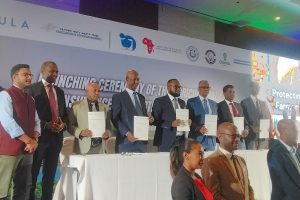
To overcome the state of flux in the global diplomatic situation and to make sure that the country’s major interests are properly protected, Ethiopia must pull more dab-handed and talented career diplomats to its diplomatic missions, so claim experts. This time, with the Horn geopolitics and international political situation seeing rapid changes, calls for refined diplomats and redefined foreign policy.
Zealous reform on foreign missions must heed to ensure professionalism in addition to the partisanship which the country has been highly leaning to, according to the political and international experts. With a plan to effectuate new reform, the Ministry of Foreign Affairs announced recently that new appointments of Ambassadors and Diplomats would be divulged soon. The appointments of diplomats including ambassadors have been politically made a trend that compromises the art of diplomacy, says Hasabu Tesfa, a lecturer at Debre Berhan University Department of Political Science and International Relations.
Political affiliation with the ruling has long been the main card in the deployment of ambassadors and diplomats, he adds. “We have seen even people proving incompetence at various government capacities picking up key diplomatic positions, even in embassies of strategic importance,” he says, adding that: “This has been undermining the very essence of diplomatic missions.” To him, the government has been over emphasizing on partisanship for years.
There were even attempts to use appointments to isolate critics within the ruling party, as well as appease inefficient party members, according to the lecturer. He furthered his claim saying that appointments have been strongly tied up to partisanship which is more in keeping with the ruling party’s interest. The position has been downgraded, while both these trends have arguably negative impact on the strategic foreign relations the country has been pursuing at international levels.” The way the embassies and diplomatic missions had been running was also restraining the relations between the government and the Diasporas which nowadays are improving with coming of Prime Minister Dr. Abiy Ahmed who pursues rather rosier relations with the community.
Diplomacy has long been central to Ethiopia’s position at continental and global levels. It is through relentless diplomatic efforts that the country has able to host many international, continental and regional blocs and organizations, he states. “Hence, the country should be able to maintain its position by refinThe Art of… ing diplomatic missions and timely redefining foreign policy.” The country should move into merit-based diplomacy in which right and qualified people are appointed to serve the very interest of the nation. The country needs to form a diplomatic mission comprised of scholars, influential individuals and the likes, he indicates.
Ambassadors and diplomats should be one who can serve their country and do not compromise national interests over courses of government or political changes. Diplomacy is a strong weapon to secure national interests at the global frontiers, he argues. The Horn is in states of flux. So, the country’s foreign policy must give greater attention to ensuring healthy and strong policy towards the region. Abebe Aynete, has been serving as senior researcher with Ethiopian Foreign Relations Strategic Studies Institute.
His take on the issues in question goes: “A diplomat or ambassador should only represent the national interest—be it economic, political or social ones.” To materialize this, appointments must be on the basis of merit, he says. “Unluckily, we have very few career diplomats.” The country’s foreign policy gives more emphasis on neighboring relations and economic diplomacy. And the very better way to pursue these is to assign career diplomats who can champion the wide-ranging interests.
“Multi-polar and geopolitical order is shaping foreign relations; hence, Ethiopia’s foreign policy should play into these by appointing efficient diplomats with particular focus on the neighboring and Middle East countries.” Appointment of diplomats should be in line with fostering political alliance, strengthening economic cooperation, scaling up citizens’ protection abroad and upgrading consular services both for citizens and foreign nationals, he adds.
The new reform into the organizational structures and missionaries has been carried out in a bid to meet the present-day diplomacy and foreign relations demands thereby to ensure national interest to the best possible, Ministry Spokesperson Meles Alem tells journalists recently. The reform can be described as “a major departure” as it brings new goal-oriented operating system to the head office and 59 missions, Meles adds. Explaining that there will be also new appointments of Ambassadors and Diplomats, he notes that Major consideration is given for professionalism and diplomatic skills.” The ministry’s directorate general offices at the head office and its 400 diplomats which account half its entire diplomats across 59 embassies and consular offices are reshuffled, he discloses.
“In order to correctly effectuate the reform, we have made studies to identify strategic areas of specific interests in which all Embassies and Consular missions will have their own specializations as per the strategic locations.” Consequently, senior and high profile diplomats will be deployed in neighboring countries to pursue Ethiopia’s effective policy towards the countries on the basis of “Good neighborhood and Zero Discord”.
The Ethiopian Herald, December 21/2018
BY DESTA GEBREHIWOT




